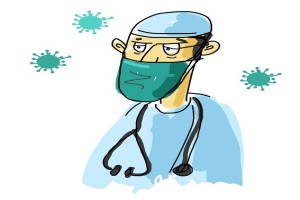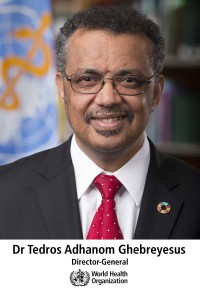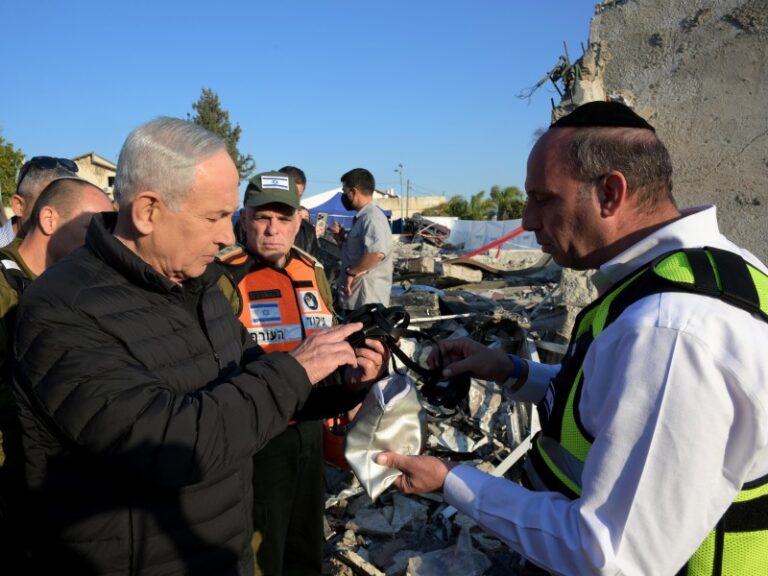
[the_ad_placement id=”adsense-in-feed”]
10 trillion dollars already been invested by G20 countries in fiscal stimulus to deal with the consequences of the pandemic so far
Global death toll because of the deadly virus to cross 750,000 this week
Geneva: As countries work to suppress COVID-19, there is a need to further accelerate the work to rapidly develop and equitably distribute the additional tools needed to stop the COVID-19 pandemic. Just over three months ago the World Health Organisation (WHO) launched the Access to COVID-19 Tools (ACT) Accelerator as the “fastest and most effective way” to do this.
The ACT Accelerator is the only end-to-end, global solution that combines public and private sector expertise in research and development, manufacturing, procurement and delivery for the tools needed to address the pandemic’s cause. The WHO on Monday stated that the accelerator supported vaccines were in Phase 2/3 trials. While a Global Vaccines Facility was engaging over 160 countries, the first therapy for severe COVID – dexamethasone – was in scale-up. The WHO informed that dozens of other “promising” therapies were under analysis. Over 50 diagnostics are in evaluation, including potentially game-changing rapid antigen tests. And a comprehensive framework for allocating these scarce tools for greatest global impact, is under consultation.
[the_ad_placement id=”content-placement-after-3rd-paragraph”]
 “The coming 3 months present a crucial window of opportunity to scale-up the work of the ACT-Accelerator for global impact, WHO Director General Dr. Tedros Adhanom Ghebreyesus said. However, he was quick to add that to exploit this window “we have to fundamentally scale up the way we are financing the ACT-Accelerator and prioritize the use of new tools”.
“The coming 3 months present a crucial window of opportunity to scale-up the work of the ACT-Accelerator for global impact, WHO Director General Dr. Tedros Adhanom Ghebreyesus said. However, he was quick to add that to exploit this window “we have to fundamentally scale up the way we are financing the ACT-Accelerator and prioritize the use of new tools”.
According to Dr. Ghebreyesus there has been a “vast global gap between our ambition for the ACT-Accelerator and the amount of funds that have been committed… we’re only 10% of the way to funding the billions required to realise the promise of the ACT Accelerator. And this is only part of the global investment needed to ensure everyone everywhere can access the tools’.
He added: “For the vaccines alone, over $100 billion dollars will be needed. This sounds like lot of money and it is. But it’s small in comparison to the 10 trillion dollars that have already been invested by G20 countries in fiscal stimulus to deal with the consequences of the pandemic so far.”
As per the WHO projection, this week registered cases of COVID-19 will reach 20 million, and the global death toll because of the deadly virus will cross 750,000.
“Behind these statistics is a great deal of pain and suffering. Every life lost matters. I know many of you are grieving and that this is a difficult moment for the world,” Dr. Ghebreyesus said, but added that he was clear in his mind that there were “green shoots of hope” and no matter where a country, a region, a city or a town is – it was never too late to turn the outbreak around.
He postulated that there are two essential elements to addressing the pandemic effectively:
1) Leaders must step up to take action
2)Citizens need to embrace new measures.
He pointed out how some countries in the Mekong Region, New Zealand, Rwanda, and many island states across the Caribbean and the Pacific were able to suppress the virus early.
New Zealand is seen as a global exemplar and over the weekend Prime Minister Jacinda Ardern celebrated 100 days with no community transmission, while stressing the need to remain cautious. Rwanda’s progress is due to a similar combination of strong leadership, universal health coverage, well-supported health workers and clear public health communications. All testing and treatment for COVID-19 is free in Rwanda, so there are no financial barriers to people getting tested. And when people test positive for the virus, they’re isolated and health workers then visit every potential contact and test them also. Getting the basics right provides a clear picture of where the virus is and the necessary targeted actions to suppress transmission and save lives. This means that where there are cases, the government can quickly implement targeted measures and focus control efforts where they are needed most.
Other countries like France, Germany, the Republic of Korea, Spain, Italy, and the UK had major outbreaks of the virus but when they took action, they were able to suppress it.
Dr. Ghebreyesus stressed that chains of transmission could be broken by combination of rapid case identification, comprehensive contact tracing, adequate clinical care for patients, physical distancing, mask wearing, regular cleaning of hands and coughing away from others. “Whether countries or regions have successfully eliminated the virus, suppressed transmission to a low level, or are still in the midst of a major outbreak; now is the time to do it all, invest in the basics of public health and we can save both lives and livelihoods. In the countries that have done this successfully, they are using a risk based approach to reopen segments of societies, including schools. And as they do so, they must remain vigilant for potential clusters of the virus,” he said. “We all want to see schools safely reopened but we also need to ensure that students, staff and faculty are safe. The foundation for this is adequate control of transmission at the community,” he added.
He concluded saying, “My message is crystal clear: suppress, suppress, suppress the virus. If we suppress the virus effectively, we can safely open up societies.”
– globalbihari bureau
[the_ad_placement id=”sidebar-feed”]





